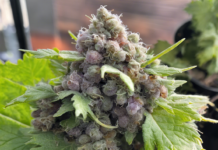Introduction
Living an eco-friendly lifestyle has never been more important than it is today. With the increasing threats of climate change, pollution, and environmental degradation, it’s crucial for individuals to take steps towards sustainable living. One of the ways to do this is by embracing your inner Bee Hippy – a term that combines the eco-consciousness of bees with the free-spiritedness of hippies.
Why Bees?
Bees are not just buzzing insects; they are crucial pollinators that play a vital role in our ecosystem. Without bees, many plants would not be able to reproduce, leading to a ripple effect on the entire food chain. By adopting some of the behaviors and habits of bees, we can make a positive impact on the environment.
Hippies and Sustainability
Hippies are often associated with a carefree attitude and a love for nature. They promote peace, love, and harmony with the Earth. By combining the eco-consciousness of bees with the mindful living of hippies, we can create a lifestyle that benefits both ourselves and the planet.
Tips for Embracing Your Inner Bee Hippy
1. Reduce, Reuse, Recycle
One of the fundamental principles of eco-friendly living is the 3 R’s: Reduce, Reuse, Recycle. Start by reducing your consumption of single-use plastics and other disposable items. Reuse items whenever possible, and recycle materials to give them a new life. This simple mantra can significantly reduce waste and minimize your environmental footprint.
2. Choose Sustainable Products
Opt for products that are sustainably produced and eco-friendly. Look for items made from recycled materials, organic ingredients, or renewable resources. Support companies that prioritize sustainability in their manufacturing processes and supply chains.
3. Conserve Water and Energy
Be mindful of your water and energy consumption. Fix leaky faucets, use energy-efficient appliances, and turn off lights when not in use. Small changes in your daily habits can lead to significant savings in resources and utility bills.
4. Grow Your Own Food
Consider starting a small garden to grow your own fruits, vegetables, and herbs. Not only does this promote self-sufficiency and reduce your carbon footprint, but it also ensures you have access to fresh, organic produce. Even if you don’t have a garden, you can grow herbs or sprouts indoors.
5. Support Local and Organic
Buy from local farmers markets and organic stores whenever possible. By supporting local producers, you reduce the environmental impact of long-distance transportation and help sustain small-scale agriculture. Organic products are also free from harmful pesticides and chemicals, benefiting both your health and the environment.
6. Reduce Car Usage
Try to minimize your reliance on cars by walking, biking, carpooling, or using public transportation. Vehicle emissions are a significant contributor to air pollution and greenhouse gases. By choosing alternative modes of transportation, you can reduce your carbon footprint and promote a healthier urban environment.
7. Embrace Minimalism
Simplify your life by decluttering and adopting a minimalist lifestyle. Minimalism focuses on quality over quantity, encouraging you to buy only what you need and cherish the items you have. This not only reduces waste but also promotes a sense of contentment and inner peace.
8. Support Environmental Causes
Get involved in environmental activism and support causes that aim to protect the planet. Volunteer for clean-up events, donate to conservation organizations, or participate in advocacy campaigns. Your voice and actions can make a difference in raising awareness and driving positive change.
Frequently Asked Questions (FAQs)
1. What are some easy ways to reduce plastic waste in everyday life?
– Use reusable shopping bags
– Carry a reusable water bottle
– Say no to plastic straws
– Opt for products with minimal packaging
2. How can I make my home more energy-efficient?
– Use LED light bulbs
– Install a programmable thermostat
– Seal gaps and insulate windows
– Unplug electronics when not in use
3. Are there any eco-friendly alternatives for household cleaning products?
– Make your own cleaning solutions using vinegar, baking soda, and essential oils
– Look for eco-friendly brands that offer non-toxic and biodegradable options
4. What is the impact of fast fashion on the environment?
– Fast fashion contributes to textile waste, water pollution, and unethical labor practices
– Opt for sustainable fashion brands or second-hand clothing to reduce the environmental impact
5. How can I reduce food waste in my kitchen?
– Plan meals and use leftovers creatively
– Compost food scraps
– Store food properly to prolong freshness
By embracing your inner Bee Hippy, you can cultivate a lifestyle that is not only environmentally friendly but also enriching and fulfilling. Small changes in your daily habits can lead to significant positive impacts on the planet and contribute to a more sustainable future for all.









